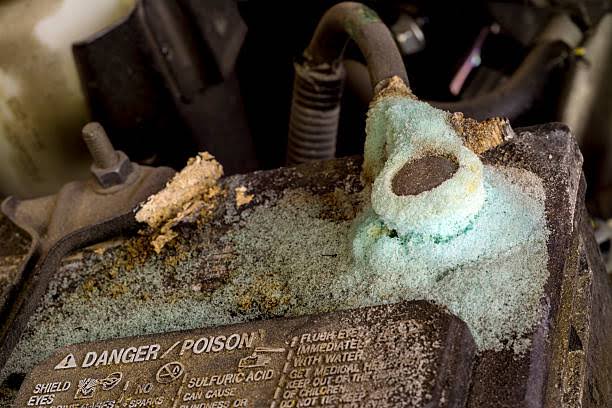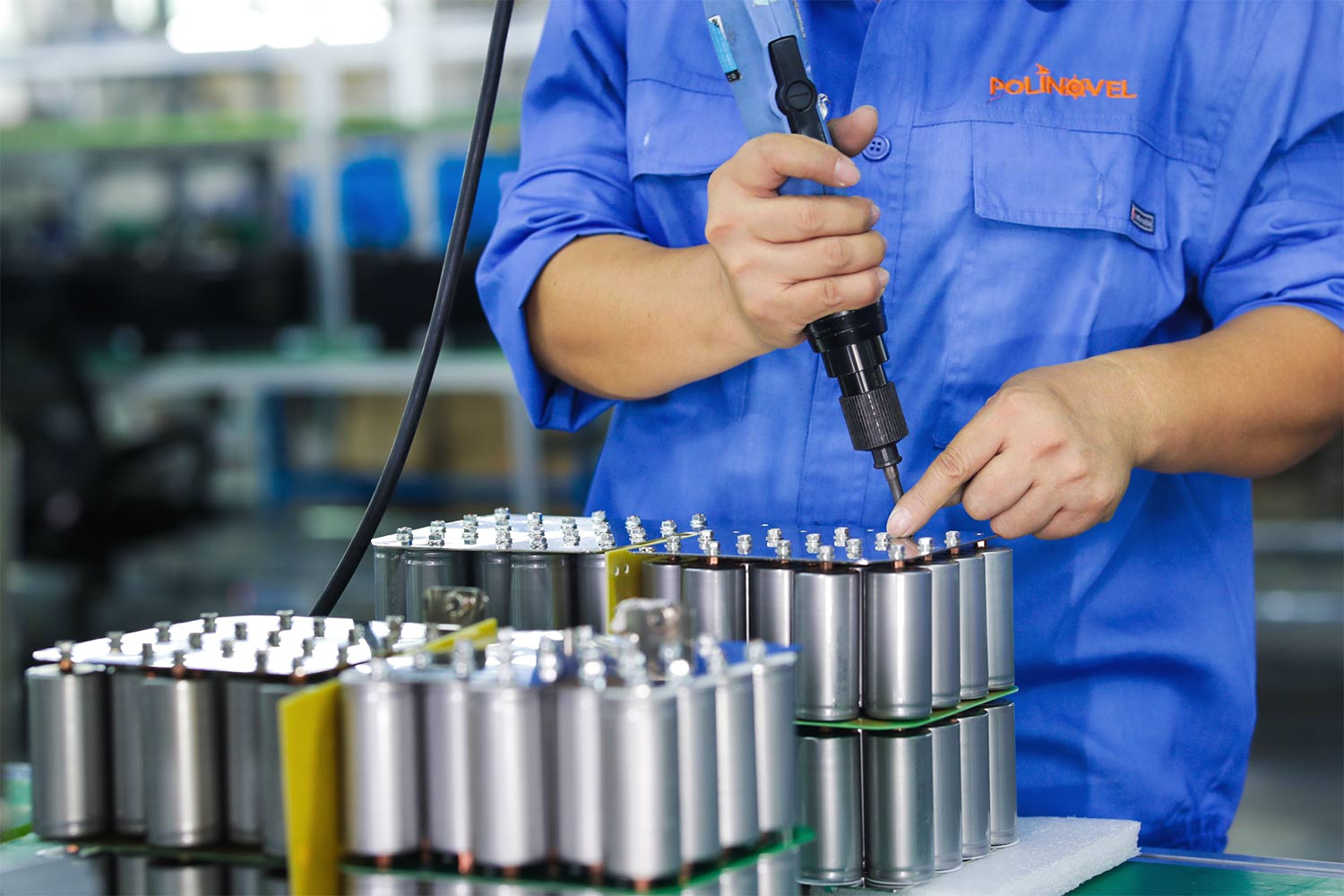Batteries are commonly used material for powering most mechanical and electrical appliances. There are several types, and each of them have their specific limitations. When it comes to lead-acid batteries, sulfation is one popular defect faced and it is capable of ruining the battery’s useful life when left unused for some time.
This article gives answers to critical questions like what is sulfation in battery, its symptoms, its causes, how it can be fixed, the types of sulfation, and practical measures to keep lead-acid batteries away from sulfation?
But first, let’s start with what is a sulfated battery?
What is Battery Sulfation
Battery sulfation occurs when there is constant build-up or formation of lead sulfate crystals, both on the surface and within the active materials of a battery’s lead plate.
Normally, a lead-acid battery is made up of three materials; Cells, Lead Plates, and Electrolytes (sulphuric acid & water). Whenever electrical current flows through a battery, the electrolyte and the lead plate begin to react. This reaction allows the electrolyte and sulfuric acid mix with the lead material to bring about lead sulfate on its plate.

Now that an answer is being provided to what does a sulfated battery mean, what are sulfation battery symptoms?
Sulfated Battery Symptoms
Most of the frequent and early battery failures happen as a result of sul on battery charger. It shouldn’t be allowed on lead-acid batteries because it fosters the continuous build-up of lead sulfate on the plates whenever the battery discharges. This alone can reduce the surface area on the plates, leaving the battery with less positive active material to produce power. Below is a list of things to expect on a sulfated battery.
- ● Longer charge duration
- ● Reduced battery lifespan
- ● Boilovers on the battery
- ● Persistent heat build-up within the battery
- ● Shorter run time in between charge time
- ● Complete battery failure
- ● Loss of starting power
The Cause of Battery Sulfation
As bad as battery charger sul is, it is part of the electrochemical processes involved in converting stored chemicals into electrical energy. Although sulfation is meant to be temporary because it is bound to be reversed whenever the battery gets charged. Now below is a list of factors that can cause sulfation.
Overcharge
Overcharging is a situation where a battery gets overly charged than its capacity. Whenever a lead-acid battery is overcharged at a high rate, the electrolyte solution will begin to overheat. This will lead to the formation of excess hydrogen and oxygen gasses that can lead to the build up of sulphuric acid.
Used at Excessive Temperatures
Whenever a lead-acid battery is being used or stored above 75°F, the rate of sulfation and self discharge begins to increase. And for every 10°F rise above room temperature, sulfation and self discharge will double.
Discharged for a Long Time/Keep Undercharged
Battery discharge or long time undercharging will bring about an increase in the density of lead sulphate. The more a battery is left idle the more sulfation occurs by forming large crystals on the battery plate.
Types of Battery Sulfation and How to Fix Them
Lead-acid batteries can only be affected by two types of sulfation, which are Reversible and Permanent Sulfation. Early discovery of sulfation will determine if it can be reversed or not. The voltage discharge curve is a good way to determine if the sulfation is reversible or irreversible.
When a fully charged battery holds stable voltage during discharge, it is reversible. When the voltage drops rapidly with load on, it might not be reversible.

Reversible Sulfation in Battery
Another name for this is soft sulfation, and just like the name implies, it is a type of sulfation that can be easily corrected when discovered early. This type of sulfation can be fixed by applying an overcharge to a fully charged battery, using a regulated current of 200mA for about 24 hours. In order to make the process more effective, the battery temperature level may be increased too.
Permanent Sulfation in Battery
When a lead-acid battery is being stored or kept in a low charge state for a couple of weeks or months, the outcome is most likely to be a permanent sulfation. When this occurs, no form of restoration is possible other than replacing it with a battery resistant to sulfation to avoid future occurrence.
How to Prevent Having a Sulfated Battery
After answering the questions, what is battery sulfation, what does sul mean on a battery charger, the symptoms, causes, and types, the next line of action is how it can be prevented.
In order to avoid battery sulfation, the major thing not to do is storing a battery for a long period of time. Even if there is a need to, the battery must be fully charged to attain at least 12.4 volts, and the storage temperature must not exceed 75°F. When the temperature exceeds 75°F, it won’t only lead to sulfation but also speed up the rate of self-discharge.
Another way to prevent the build up of sulfate is to make use of a battery maintenance charge / sul battery charger. This is the easiest way to tackle sulfation because it ensures the battery is charged efficiently without the risk of an overcharge/undercharge.
Storing a battery with zero charge must be totally avoided as it increases the chance of permanent sulfation. Finally, following an appropriate battery health best practice will extend a battery’s lifespan, and prevent it from any form of damage.
Polinovel: Better Battery Option Without Sulfation Worries
As far as Lead-acid battery is concerned, or regardless of the preventive measures adopted, sulfation will always take place. The only way to permanently tackle sulfation is to adopt the use of lithium-ion batteries. This type of battery is more like an upgrade as it is built to process twice the power of a lead-acid battery, and a prolonged useful life.

In a highly competitive market, Polinovel has been able to develop a lithium battery specially for RV’s and marine application. This product requires zero maintenance, it is easy to carry, it supports series/parallel connection, and it is equipped with BMS protection.
As it stands, lithium batteries are getting more recognition from end user’s due to their magnificent features and wide range of applications. This battery can serve as a great storage option for energies from all sorts of renewable sources, and it can as well be applied in golf carts.
Thanks to the Polinovel Bluetooth Lithium Battery, users can now monitor and control numerous parameters on their battery from the convenience of their phone. This and all sorts of mind blowing innovative developments are things you should expect from Polinovel. Reach out to us today to join the list of Polinovel distributors worldwide.
Conclusion
Ever since the advent of lead-acid batteries, sulfation has been a problem. That is why manufacturers and developers have constantly come up with measures on how to desulfate a battery. And due to the fact that sulfation is one of the major electrochemical processes lead-acid batteries must undergo, this issue can’t be fully eliminated.
In this post, we’ve provided answers to inquiries like what is battery sulfation, what does sulfated battery mean, and how to prevent desulfation in batteries. With Polinovel lithium batteries, users won’t have to worry about sulfation, persistent heat buildup, or constant battery maintenance anymore.

